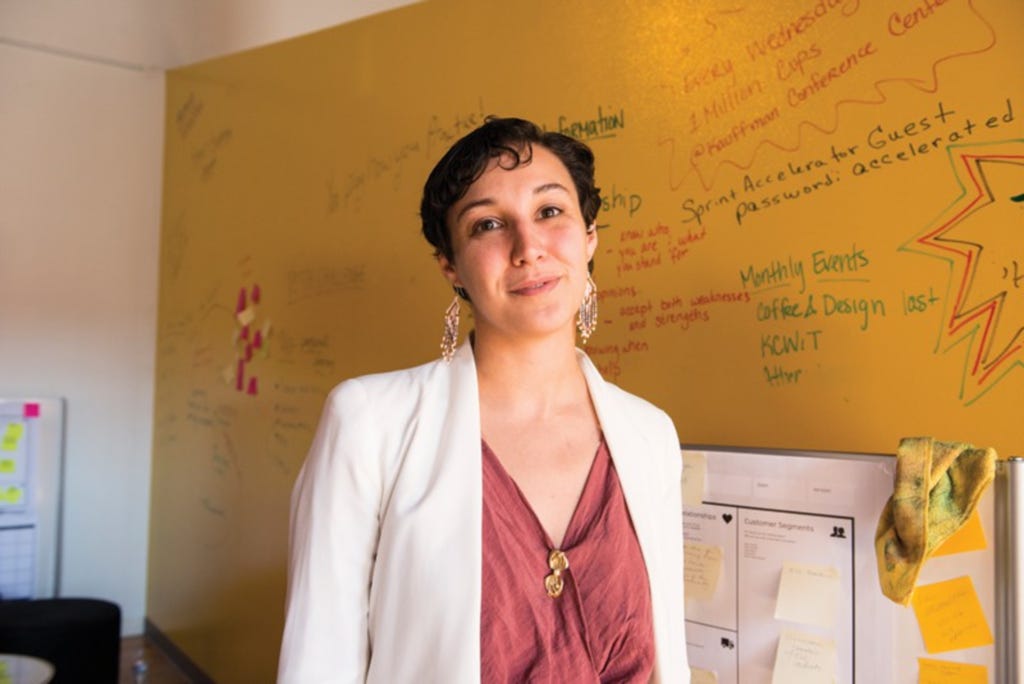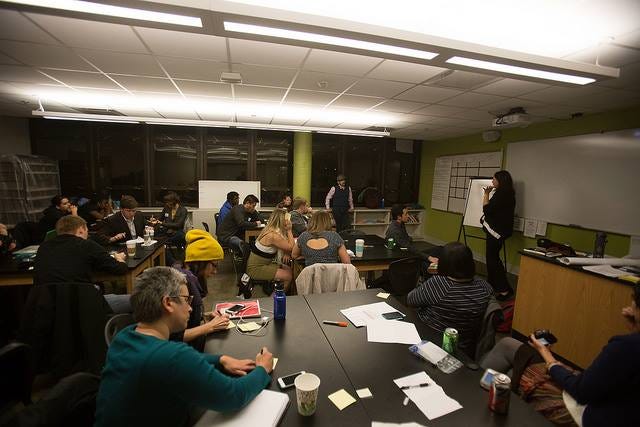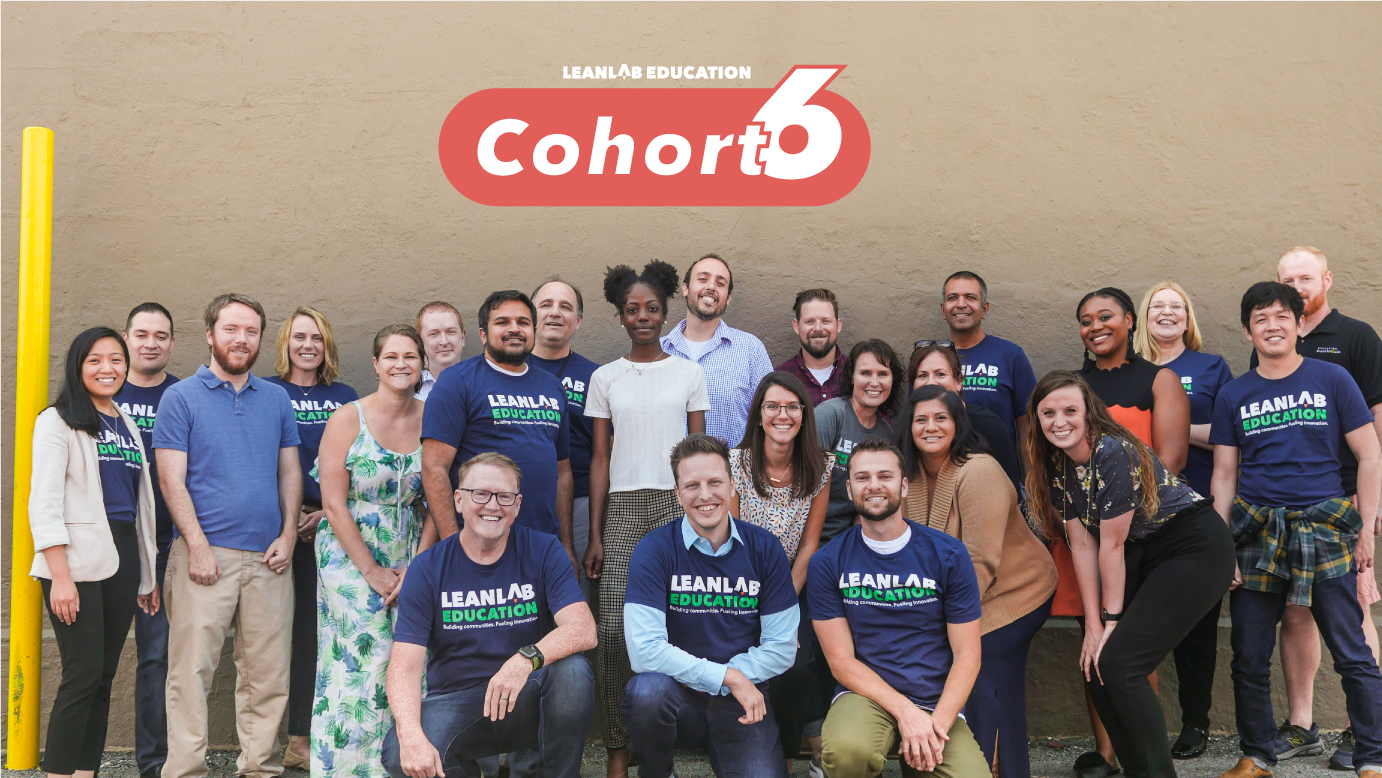One morning, ten years ago, I was having heart palpitations in the parking lot outside my school. Exhaustion and anxiety had taken hold.
For five years I had taught middle school and considered myself part of the national “education reform” movement. As teachers, we worked hard to eke out marginally better academic performance for our students (largely low income children of color) as measured on standardized test scores. We did so by using mostly direct instruction, rote (‘teaching to the test’) methods, and building classroom cultures that relied on extrinsic motivation at best, or were rooted in behaviorist punitive authoritarianism at worst. We regularly worked 16 hour days, 6 days a week, and over holidays.
Despite our efforts, there was little progress to show. Student and life outcomes for children of color and students experiencing poverty barely budged; if they did, it was dependent on exhausted and exhausting systems that were expensive and struggled to scale.
So there I was, after five years of teaching, having a panic attack in the parking lot outside my school. I knew my students were beyond capable; I also knew that our education system was failing them, and failing me.
So, I did something I’d never done before: I quit. I couldn’t get the image out of my head of my Puerto Rican mother ironing my work shirts in the early days of my teacher training… “Don’t you think this approach [the middle class white teachers being imported into Black and Brown neighborhoods to teach to a test] all sounds a little paternalistic? Do you think it will actually work?” My mom was trained as a radical community organizer. Palante—with fifteen years of hindsight, she was spot on.
Leanlab Education was born as a reaction. It started as an interdisciplinary brunch group in my living room made up of educators, social workers, artists, and law enforcement within my orbit. It started with a community coming together and sharing ideas of what could be possible. It started with a vision for a world where all students have access to effective and excellent educational solutions.
Without my day job (and without a safety net—I worked nights and weekends at restaurants), I put all of my energy toward this fledgling idea. I found a small group of committed folks and we launched as a community-oriented fellowship and training program. We would equip parents, educators, and students with an entrepreneurial and community-minded spirit; we would teach them to “define problems,” solicit feedback from key stakeholders, and prototype ideas for new education solutions.
We met in empty strip malls, community centers, and a spare science lab. We prototyped new solutions and ran experiments on “shower board,” cheap $7 coated particle board you use as DIY whiteboards that I carried around in my beat-up Honda Fit. We collected “problem statements”—issues defined by different stakeholders across the city—and used these as inspiration for future innovations. We united under the vision that the future of education would be built by, for, and with those most impacted: students, families, and educators.
Within a year, we established a partnership with a tech accelerator who donated space for us to use. We began a formal fellowship program in 2015, and within three years were attracting entrepreneurs from Australia to Kansas City to innovate in community-minded ways. Leanlab was now able to grant seed funding checks up to $35,000 (what would have been a very meaningful amount, when I first started Leanlab), often to former educators. Across eight fellowship cohorts, the initiatives we supported evolved to primarily education technology (edtech) startups. Many went on to become scalable solutions, used by millions of students. To date, Leanlab has supported more than 60 ventures in a fellowship or research capacity.
As edtech became the dominant mode of innovation in our program and in schools across the US, we realized a critical question was unanswered: to what extent was edtech actually producing learning outcomes for kids? Were new technologies an improvement, or just a digital replacement for what existed before in classrooms?
Unable to answer this question, we began bringing our school communities closer, asking them to act as lab environments. In 2017, we brought a PhD research team in-house and began working with schools who adopted emerging technologies as our team measured their potential impact. However, rather than taking a clinical approach, we wanted to subvert the power dynamic of traditional R&D, where researchers and developers dominate the research agenda; instead, we implored school communities to lead and entitled this approach, “Codesign Product Research.”
Just as we began to launch this school-first research work, the world shut down. In 2020, edtech became the dominant instructional delivery mechanism for all American youth, and beyond. A racial reckoning had the industry questioning how we approached our work with communities of color. The Great Resignation called for a re-imagination of work environments. Like everyone, Leanlab pivoted to meet urgent and critical needs, conducting research on the digital divide in Kansas City and granting $50,000 in unrestricted microgrants to Black and Brown entrepreneurs in the region.
In the last few years, as we eased out of the pandemic, schools shifted from crisis mode to a more thoughtful approach to edtech procurement, seeking evidence of impact from companies and driving an increased demand for research. Leanlab’s research journey expanded to meet this demand, partnering with more schools and companies to explore everything from early concepts to the efficacy of district-wide tool implementation. In 2022 we launched our Codesign Product Research certification, and our Building Evidence certification in 2023; to date we’ve awarded 10 codesign and evidence-oriented clients.
Now we find ourselves at a new existential crossroads in education, forged by the rapid proliferation of AI: Do we guide the technology, or let the technology guide (and perhaps) replace us as educators?
In the wake of all of this change, is it time to pivot again?
This year, Leanlab celebrates 10 years as a company. Our team will also celebrate 50 research projects that have been codesigned with school communities (the January tally is 47 studies that have been codesigned and 67 total studies).
We will celebrate over 250 recommendations surfaced by school communities that have yielded product changes from nearly every edtech company, with codesign-informed products reaching millions of students each year.
Considering Leanlab’s impact, instead of pivoting, we will double down:
We know we need to invest more and deepen our trust in school communities; our regional school communities need and deserve innovative solutions that improve student learning.
We will be expanding our approach to divert resources directly into regional school communities across the United States, connecting them with the capital, expertise, and partnerships necessary to drive their own R&D agendas.
We know this work is interdependent; we need to keep building community across educators, investors, philanthropists, and policy makers. Initiatives that we co-founded, like the Global Edtech Trialing Network, need to grow and continue to provide open-source resources that help establish a cohesive, inclusive education R&D infrastructure.
We will continue working to coordinate collaborative and collective impact approaches to this work.
We know time is of the essence; in an Age of AI it has never been more urgent to ensure that emergent technologies have been built on sound research and are responsive to insights from our most vulnerable communities.
We will continue our partnerships with philanthropy, Venture Capital firms, and edtech companies to ensure they can continuously engage in the rapid-cycle and human-centered R&D necessary to create game-changing solutions for children.
Wherever the future of education takes us, we will continue to center students, educators, and school communities—as we have since day one at Leanlab. We are going to take some big swings this next year and in the next ten. However, we stay committed to research and community voice. I’m so excited about what the next decade may bring, but, for now, I’m celebrating Leanlab’s first decade.





